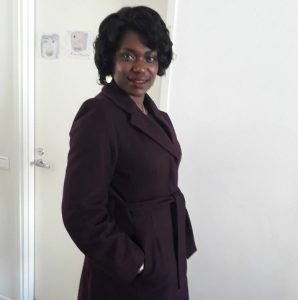Life of doctoral candidate and a mum
As early as I understood what a doctoral degree was, I knew at one point in life I would be pursuing one. After completing a master’s degree and my inability to find a job, pursuing a PhD was my ticket out of unemployment (story for another day).
Life as a doctoral candidate was challenging for me, especially because at the same time I was raising two kids and had one more in the process. Trust me on this one, doing a PhD while raising three kids is no child’s play. I have had conversations with friend and colleagues who thought that I have managed so well to balance work and family. One thing that was always missing from our conversations was what finding balance actual meant.
For starters, I did a little research and was shocked to see more than 5 million results, following my search on google with the keywords, balancing work and family. My reading of some scholarly articles indicated that rather than talk about work-family balance, we should rather consider a work-life approach because it is a broader perspective that takes into account other aspect of an individual’s life (besides family), including community, leisure, church, sports and other activities. However, these listed activities are things that one can decide to (not) engage in and when, which is not the case with raising kids, making life for doctoral candidates with kids even more challenging and demanding.
Balancing work and family, according to the literature, requires understanding the demands of both settings, the resources of both settings, the specific abilities of the individual parent, and how the three come together ‘Boundary spinning’ is a concept that is used to indicate the spillover effect the demand of one setting can have on the other, posing challenges on the other, resulting in difficult choices and or sacrifices.
The word balance, according to dictionary definition, is a state of equilibrium or equal distribution of whatever resources at our disposal (in this case, time). It also was interesting to note how in some none-scholarly write-ups, the word balance was seen as problematic because it portrays a notion that things are right or wrong, black or white, leaving a person with a constant feeling of guilt of not measuring up.
For me, pursuing a doctorate while raising three kids meant sometimes, giving up study time to play with the kids, assist them with their homework, go for developmental meetings, accompany them to their hobbies or cook for the family (something I enjoy doing). It also meant that there were days I could not go to work or was called back from work because one of my kids fell sick. It meant canceling dates with friends or sacrifice my- me time to either be with the kids or catch up with studies and writing. In moments like that, I was not thinking about balance. What kept me going was focusing on the things I had to do and getting them done. This meant sacrificing somethings to focus on others – making constant decisions about what to sacrifice, especially because I could not do them all.
I made the time I spent working on my doctoral dissertation or with family and friends count, spending every hour, minute or second as though it was my last. Discussing the challenges I faced with my husband and him stepping in to take up more responsibility, also made it easier. I also came to realize that asking for help from friends (to look after the kids while I studied or rested), especially when my husband was out of town, did not make me weak or irresponsible. Rather, it gave me the chance to focus on other things that only I could do (writing my dissertation) and not feel guilty about it. For me therefore, it was not about balance, rather, carrying out both functions (mother and doctoral candidate) required constant negotiation, sometimes daily and sometimes, multiple times a day.
Elizabeth Eta

